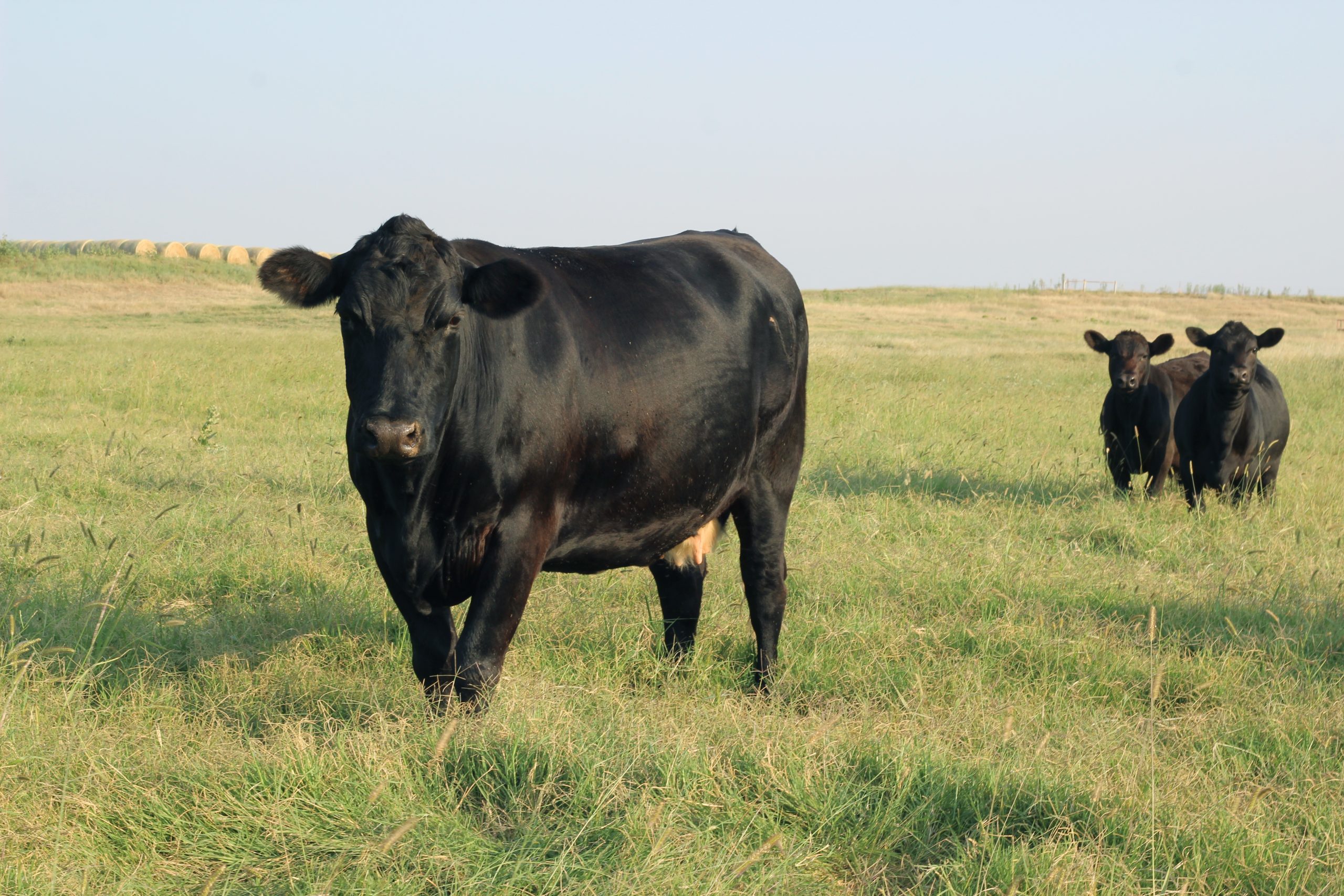It is no secret that cattle deworming products are becoming less and less effective. Dr. Christine Navarre, DVM, Extension veterinarian at Louisiana State University Agricultural Center, spoke about the topic of internal parasite management during a recent Oklahoma State University Extension Rancher’s Lunchtime webinar.
Navarre said when Ivermectin first came on the market it was 99.9% effective, but more and more parasites are developing resistance to Ivermectin and other products. She said research is limited because there are not many ruminant parasitologists that are doing applied research on the subject and research is underfunded.
“Parasite resistance is happening everywhere,” Navarre said. “Every time I go out and look for resistance, I find it. It only gets worse over time.”
There are three classes of dewormers: benzimidazoles, avermectin/milbemycins and imidazothiazoles/tetrahydropyrimidines. “As far as new products that these parasites have never seen that could be highly effective, we just don’t have any hope that we’re going to get one of those anytime soon,” she explained. “We’ve got to keep working with what we have.”
Navarre said parasites are known to decrease weight gains in young cattle, reduce reproductive efficiency, and impair the immune system.
Not all worms are created equal
Contrary to popular belief, not all parasites are bad. Navarre challenged cattle producers to start thinking of parasites as falling into two categories. Bad worms, which are resistant and have genes that allow them to escape deworming products, and good worms, also known as refugia, which are susceptible to dewormers.
“We want to keep some of these good worms around to dilute the bad worms,” Navarre said. “This keeps some good worms in the breeding pool with the bad worms, which slows down resistance. If we get really aggressive with that, there is a little bit of evidence that we can actually reverse the resistance.”
Navarre said some deworming tactics have allowed resistance to build, but if producers will reconsider how they administer dewormers, they can improve parasite management. First, producers need to make sure they are administering an adequate dose.
“If we are just estimating the weight of cattle—especially adult cattle—even experienced cattlemen typically underestimate weight by about 100 pounds,” she said.
If giving oral dewormer, cattle must receive the full dose; the oral method often leads to spilled product or cattle spitting it out. Navarre urged producers to use pour-on products sparingly. Cattle often lick it off each other making the dosage incorrect. Additionally, she reminded producers to make sure dewormers are not expired and that they are stored correctly—indoors and at room temperature. She said veterinarians no longer recommend rotating different classes of dewormer. Navarre urges producers to move from a deworming program to a parasite control program.
Best parasite management practices
Navarre shared several pasture parasite myths that have been treated as facts in the past but are untrue. The first misconception is that rotational grazing will control parasites. In fact, Navarre said it might make parasites worse. She said knowing when to rotate is difficult. The next myth is that freezing temperatures kill all parasites. Navarre said although frigid temperatures kill some, many parasites burrow into the ground and come back out when it warms up. Another myth is that not allowing animals to graze grass lower than 4inches will prevent uptake of parasites.
The factors that impact parasite numbers in pastures include climate, weather, pasture type, quality, topography, drainage and rotation. Some of these can be controlled and others cannot. Navarre stressed that producers should not try to control parasites by managing pastures.
The factors that impact parasite populations in cattle include age, sex, breed, previous exposure and other stressors. Navarre said young calves to 2-year-olds are most susceptible to parasites. Additionally, bulls are more prone to struggle with worms than cows. Navarre said Brahman-influenced cattle are resistant to external parasites, but they are actually more susceptible to the serious parasite ostertagia.
To manage these factors, Navarre recommends focusing on the cattle most susceptible to parasites and not deworming animals less likely to develop problems. She recommends over time selecting cattle that do well without dewormer.
To treat or not to treat
To combat resistance, Navarre said a correct diagnosis and proper use of dewormer are key. When conducting fecal exams, producers should get a quantitative fecal egg count. Samples from the rectum are best, but fresh pasture samples will suffice if they are kept cool and shipped immediately.
“The best thing to do is start collecting fecals over time, multiple times a year and from multiple groups of cattle to develop some history and be able to learn from the data,” she said. “Use on-farm trials to determine production at a certain FEC versus untreated controls. Use FECs for monitoring patterns over time and with changes in weather, management and stressors.”
Navarre said the data from these collections can be used to determine who and when to treat. If a cow has a zero-egg count, do not administer a dewormer. Try to do fecals two weeks before you plan to deworm and that will determine who should be treated. Navarre recommends using a combination of at least two classes of dewormers with a refugia program.
“Let’s say Ivermectin is 80% effective,” she said. “If I use that product alone, I’m going to end up with 20% bad worms. If I use fenbendazole and it’s 90% effective, I end up with 10% bad worms after using those products. If you use fenbendazole, it’s going to wipe out the Ivermectin resistant worms and vice versa. So, we end up with fewer bad worms coming out of that combination treatment. Not zero, but fewer and fewer means we’re slowing that resistance down.”
Sign up for HPJ Insights
Our weekly newsletter delivers the latest news straight to your inbox including breaking news, our exclusive columns and much more.
Lacey Vilhauer can be reached at 620-227-1871 or [email protected].




